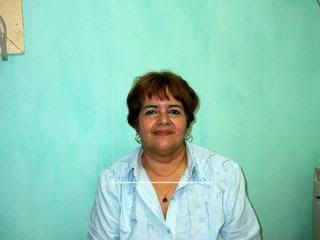Friday, July 27, 2007
Raul Castro Confirms Pragmatic Policy on July 26 Celebration
In a speech of little over an hour, acting President Raul Castro confirmed his pragmatic stance, approaching the most urgent domestic issues, while extending again his willingness to negotiate to the next US administration, deeming the current one as “dangerous” and “reactionary”.
As for his brother´s absence from public life, Raul asserted his wisdom and guidelines are present in all decisions taken and the work carried on in priority tasks, making local observers confirm their opinion that Fidel Castro is leading backstage.
Among the issues requiring urgent attention in the national scene, Raul Castro highlighted low salary levels, housing, transportation and even tools and equipment with which to work in several areas of the economy.
For a long time now, salaries guard no relation to the amount or quality of the work they are supposed to be paying. He recognized salaries are also insufficient to buy the basic food and services.
As for agriculture, cattle and dairy farming, he lashed out at lack of organization and control, together with negligence to fight “marabu” –weed bush that displaces crop plants- and advanced the government has to make structural changes in that sector.
The land is there, he insisted, and two rainy years have filled water reservoirs, so the activity has to make available all the food that can be grown and produce enough milk not only for children from birth to 7 years, but for anyone who wants to drink a glass of milk.
In his straight-forward manner he reminded people that any hike in salaries or descent in prices has to be related to a higher and more efficient production of goods and services which increases revenues, as neitherthe state nor the people can spend more than they earn.
Raul Castro lashed out at internal problems like bureaucracy, negligence, lack of control and discipline which proliferated during the economic crisis period known as “Special Period”, which by the way, he said, is still not over like other officials have suggested.
There is still a lot of work and order to be achieved, he stressed, while he alerted that all the problems cannot be solved immediately.
Wars, political unstability and the new drive to produce more fuel out of food crops like corn, soy and other grains, have now shot up prices of oil and commodities. He mentioned that while the price of the barrel of oil was around $80, almost triple what it was only four years ago when it sold for about $28. This sets off hikes in practically every other good or service, because everything has fuel involved in its process.
For instance, milk powder sold in 2004 for about $2,100 per ton. In that year, Cuba paid $105 million for its imports of this commodity. This year of 2007, however, imports required $160 million, because powder milk sold for $2,450 per ton.
Only months after, milk powder now exceeds $5,200 per ton and if national production does not increase, imports in 2008 will go up to $340 million, more than triple what Cuba spent in 2004.
In the case of milled rice, this was sold at $390 a ton in 2006 and now it sells for $435. Cuba bought frozen chicken a few years ago at $500 a ton, authorities planned for it to go up to $800, but in fact it has gone up to $1,186.
The same thing happens with practically all the ítems imported by Cuba, mainly to cover the population´s needs, who receives these supplies at subsidized prices to keep hikes from affecting consumers.
The acting President recalled all these are crops liable to be grown in this country, where there is more than enough land to expand crops and two rainy years have filled water reservoirs throughout the island. In other words, drought cannot be allegad for not increasing food production.
The first Vice President also said one of the economic guidelines was to keep improving energy-saving measures, recover previous industrial levels and add new production lines that reduce imports or create new export possibilities.
In that sense, he said the government is studying ways to attract more foreign investment and profit from the potential it has for enhancing the country´s development. Referring to past experiences, Raul said they had been naive and ignorant as to how those mechanisms work and called to design a well defined legal framework for the association to foreign capital.
As for other issues of foreign policy, Raul Castro said cooperation with other countries would be strengthened with absolute respect to the domestic policy of each country. He put the examples of joint projects with Venezuela, Bolivia and Nicaragua and solid links with China and Vietnam.
I think Cuba being aligned with Venezuela has been healthier, than Cuba allied with Russia. I think the influence of Chavez, will help toward socialism.
There are several influences in Cuba, including the Chinese model and European capitalists.
Regards.
<< Home

